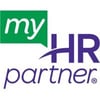Which Outsourced HR Option is Best for Your Business?

Outsourced HR options abound. Businesses can hire one or more independent providers (PEOs, payroll firms, consultants, etc.) to handle some or most HR functions — or they can put everything in the hands of one fully outsourced HR firm. The key to success? Understanding the specifics of each HR outsourcing provider before you make a move. This can be a Herculean task given the nuance at play.
Read on for the pros and cons of the most common types of HR outsourcing and our take on which businesses and scenarios they serve best. Armed with this knowledge, you can begin to make an informed plan for whether and how to outsource some or all of your essential HR responsibilities.
Fully Outsourced HR Services
Fully outsourced HR firms can handle HR functions in their entirety – from daily administrative tasks to critical larger strategy.
Pros
These one-stop shops leverage human resources as a key pillar of business planning and growth. Beyond providing compliance services, employee relations, payroll administration, and other necessities, fully outsourced HR firms strategically work to strengthen your business through your people. Most let you scale up or down services if/as needed. The absolute best HR outsourcing companies do all the work for you, eliminating the need for an in-house team. Some – like myHR Partner – also carefully match HR professionals of various skill levels to your specific human resources needs, so you only ever pay for the caliber of expertise you’re utilizing.
Cons
Full-service HR outsourcing companies need consistent, high-level collaboration with your business leadership to ensure that HR aligns with your direction, culture, and objectives. Is your team ready for that?
Best for: Growing and established businesses, private foundations, and non-profits.
HR Management Software
As the world grows even more digital, HR tech is also evolving. A growing number of HR software platforms exist to help companies streamline HR-related business operations. There are multiple advantages of using HR software, but remember, the "H" in "HR" does stand for human!
Pros
By offering one place to house your HR, software platforms ease the management of HR processes. Features vary from platform to platform, but most automate administrative, manual, and daily HR tasks needed for functions such as payroll management and employee benefits administration. Some also include access to an HR support hotline that your employees can call if/when issues arise. A smaller number of these platforms offer non-AI/chatbot user support in the event you encounter issues with the software.
Cons
While software, hotlines, and related HR technology can help efficiency and organization, they’re not human and don’t do the actual work involved with complex HR tasks. Employee hotlines are manned by humans, but are impersonal. They operate with general compliance and HR capabilities in mind, but without knowledge specific to your business — a concern for some business owners who don’t like the idea of employees calling a third-party hotline about internal company matters or benefits administration details.
Best for: Companies that handle the bulk of HR operations internally, but can benefit from the software’s organizational and automation tools.
Payroll Firm
Beyond getting your people paid, full-service payroll administration providers also file related taxes on behalf of your business and keep you compliant with wage and tax laws. Some payroll management firms also go beyond payroll services, offering several comprehensive HR solutions.
Pros
They have a proven track record of being top-notch in their specialty: Payroll.
Cons
Most payroll processing companies will not perform all necessary HR duties; rather, they will only advise on and/or handle minor HR functions. This means you will still need expertise inemployee relations, performance management, compliance services, and other HR necessities. Even more, payroll processing firms don’t handle HR strategy, which is essential if you are growing or want to harness HR’s ability to move your business forward. Finally, large payroll firms average hundreds of clients to each HR representative, so service might be less personal than you want it to be.
Best for: Companies with existing HR support who also need payroll processing support or general support for minor HR tasks.
Professional Employer Organization (PEO)
Working with a professional employer organization (PEO) can grant you access to a wide range of HR functions — almost as many as a fully outsourced HR firm.
Pros
Thanks to economies of scale, PEOs can save you money on workers' compensation and give your company access to broader health insurance options.
Cons
PEOs achieve this economy of scale by putting your employees on their payroll and leasing them back to you. This can impact your culture and your employees’ interactions with HR, which you no longer control or oversee. If you outsource HR functions to a professional employer organization, you will still need at least one HR professional supporting your organization, as PEOs won’t assume responsibility for things like employee benefits administration and administrative tasks. PEOs are also known for hidden fees, making them less desirable for companies looking for cost-effective and comprehensive services.
Best for: Companies with high turnover, external investors, or less emphasis overall on workplace culture. In particular, businesses with high workers' compensation fees can benefit greatly from the buying power of professional employer organizations.
Staffing Service/Recruiter
These are independent HR providers whose role is straightforward: to match job candidates to your job vacancies.
Pros
Staffing services and recruiters have frameworks and systems in place for recruiting and hiring talent that matches your needs. If you already have a full-service HR department but are looking for assistance with hiring-related HR tasks, this type of service provider may be ideal for your needs.
Cons
Whereas a fully outsourced HR firm knows your business inside and out, staffing services and recruiters lack such familiarity and integration. This increases the chances of a hire who’s not truly a fit for your company. Even more, staffing agencies and recruiters are financially incentivized to fill roles fast. This can impede the effectiveness and integrity of their talent management work.
Best for: Companies looking for new talent fast.
HR Consultant
Typically hired individually, HR consultants are experienced HR professionals who get to know your business and your team. They can bring a wealth of human resources information, execution, and best practices to your business operations.
Pros
Beyond their inherent value, many human resources consultants are willing to work on-site at your business some or all of the time.
Cons
Even the best HR outsourcing consultants are only one person and, therefore, only one body of knowledge. When they’re out sick or on vacation, there typically is no one else who can handle HR challenges. You’re at the mercy of their availability as well as their knowledge and skills, which can have a limiting or even misleading effect on your HR. Also, the hourly rates charged by HR consultants are the same whether they’re handling simple HR administration work or vital HR functions, but usually reflect the top end of their work — so you’re often paying for a level of expertise higher than what you’re utilizing.
Best for: Small startups and smaller organizations looking for a single HR management professional who is willing to work onsite.
Questions? Contact Our HR Outsourcing Company Today!
HR outsourcing options for businesses abound, especially since no two HR outsourcing companies are the same. Ultimately, your choice of outsourced HR provider is a personal one that comes down to your level of investment, personal preference, business needs, and the specific HR services that your business needs.
If you're thinking about outsourcing HR services, myHR Partner is here for you. From employee benefits administration and HR compliance to employee relations, payroll services, and other HR functions, we do it all and more. Your success is our success, and we are ready to help you find the HR solutions you need to move forward! Request a consultation today.
Topics discussed
ABOUT THE AUTHOR

myHR Partner Team
myHR Partner provides outsourced HR services for established small and mid-sized businesses throughout the United States. With more than 24 years of experience, our Client Services team delivers both strategic and hands-on HR support, tailored to each organization’s needs. Every member of our customer service team has a formal HR education and practical experience managing compliance, employee relations, and people operations across diverse business environments.
Related Posts

